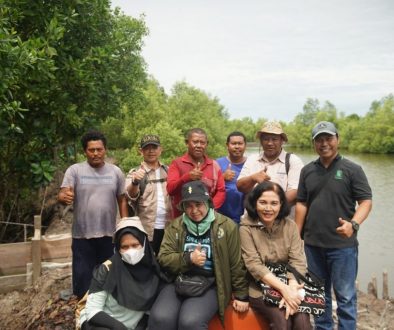Agroforestry Land Management Training
In an effort to protect dwindling natural resources, agroforestry training is one important way to conserve them. Agroforestry is a cropping system that combines the planting of forestry trees, agricultural crops, and livestock in one field. This system has been practised for generations by local communities in Indonesia, but over time, this practice has begun to erode. The agroforestry training comes as an effort to revitalise knowledge in managing natural resources sustainably.
For this reason, YAGASU facilitated agroforestry land management training to create an understanding of the projects that YAGASU has been working on to all staff, both in the western and eastern zones.
The training was conducted online through a zoom meeting with the theme ‘Enhancing Ecosystem Resilience and Livelihoods’ for two days on 3-4 October 2024.

In her opening remarks, Meilinda Suriani as managing director of YAGASU said ‘The hope of this training is that all staff can improve their skills in the field and understand how to calculate agroforestry carbon’.
Entering the material session, Siarudin as the first speaker explained ‘Forest and agroforestry land management to achieve FOLU Net Sink and NDC 2023, starting from policy coverage, concepts and development of agroforestry, and cropping patterns in community forests’.
In addition, a BRIN researcher (Siarudin) explained the steps in measuring biomass and carbon in agroforestry lands.
The second day of the training began with a discussion on agroforestry silviculture (mixed crop cultivation).
Furthermore, Aditya Hani as the second day resource person explained about a series of plans that are closely related to the cultivation and management of community forests.
author: Gellang cahyanto




